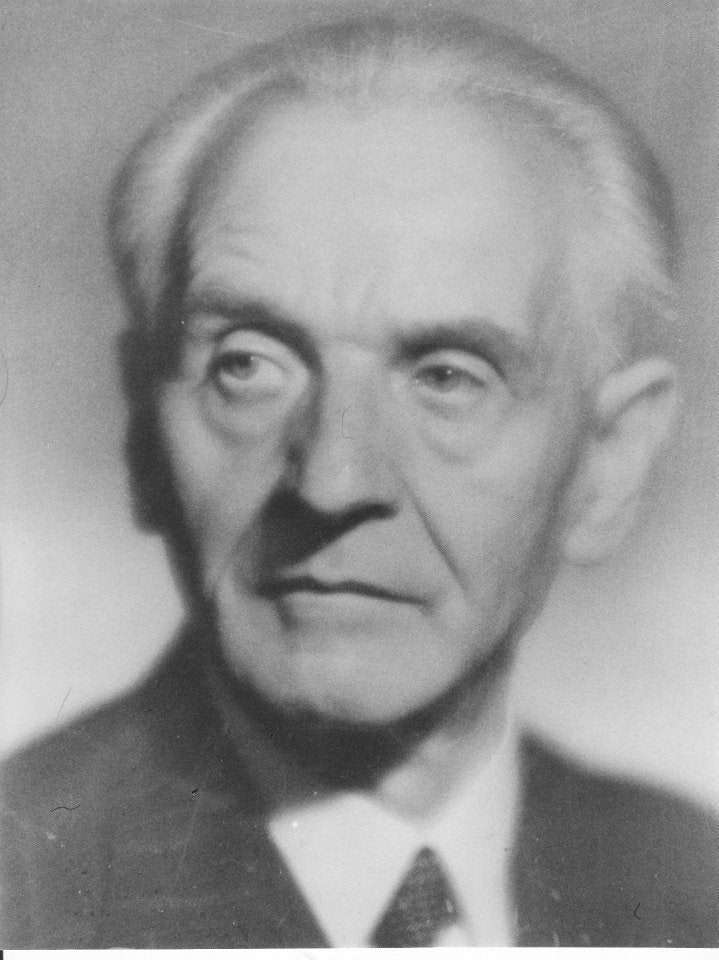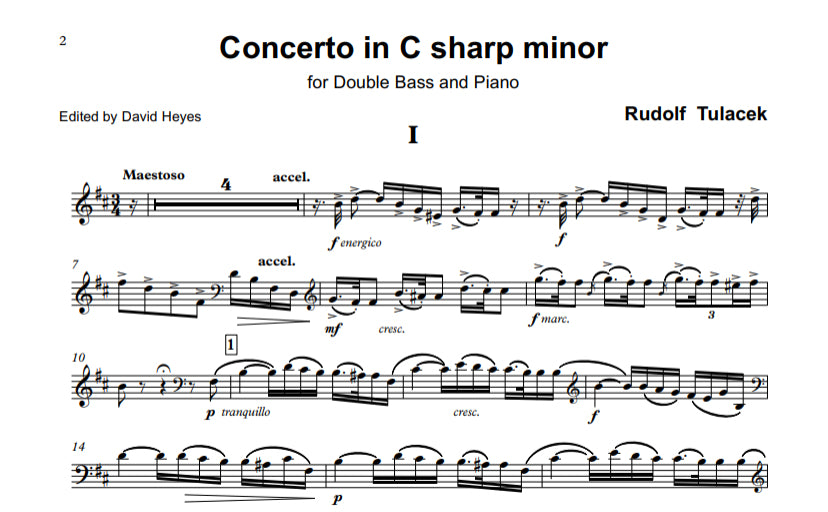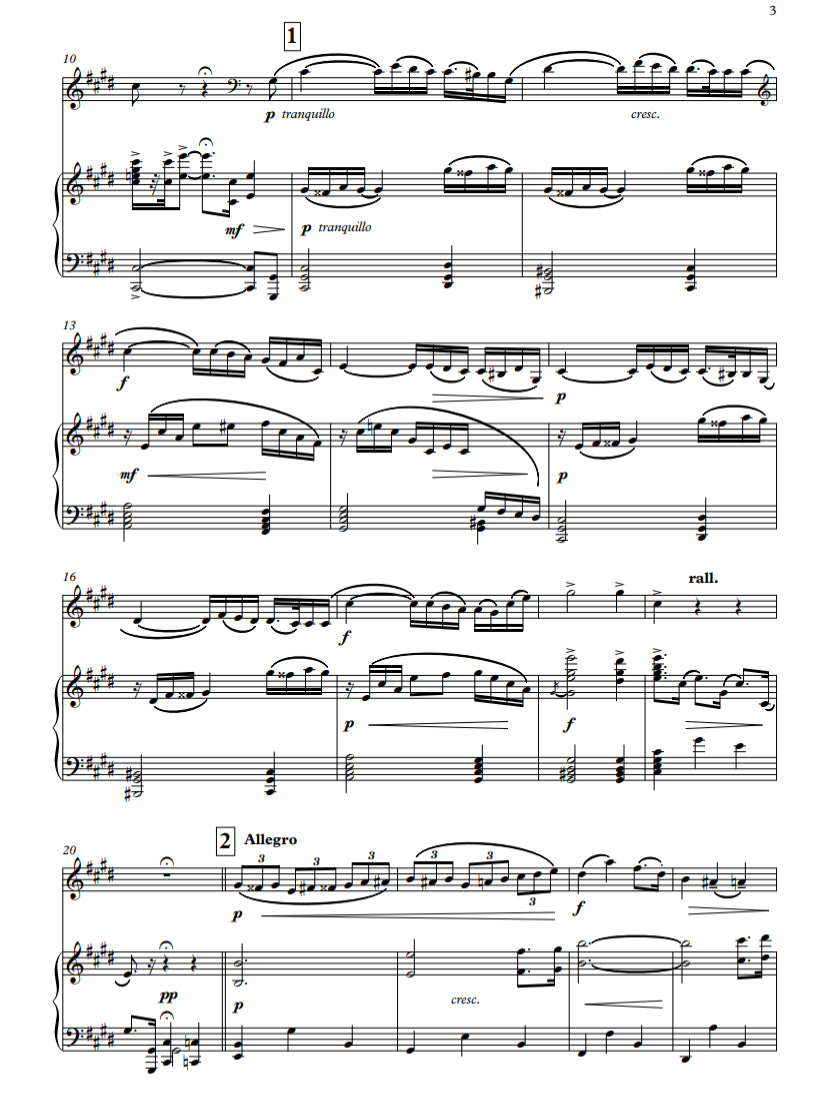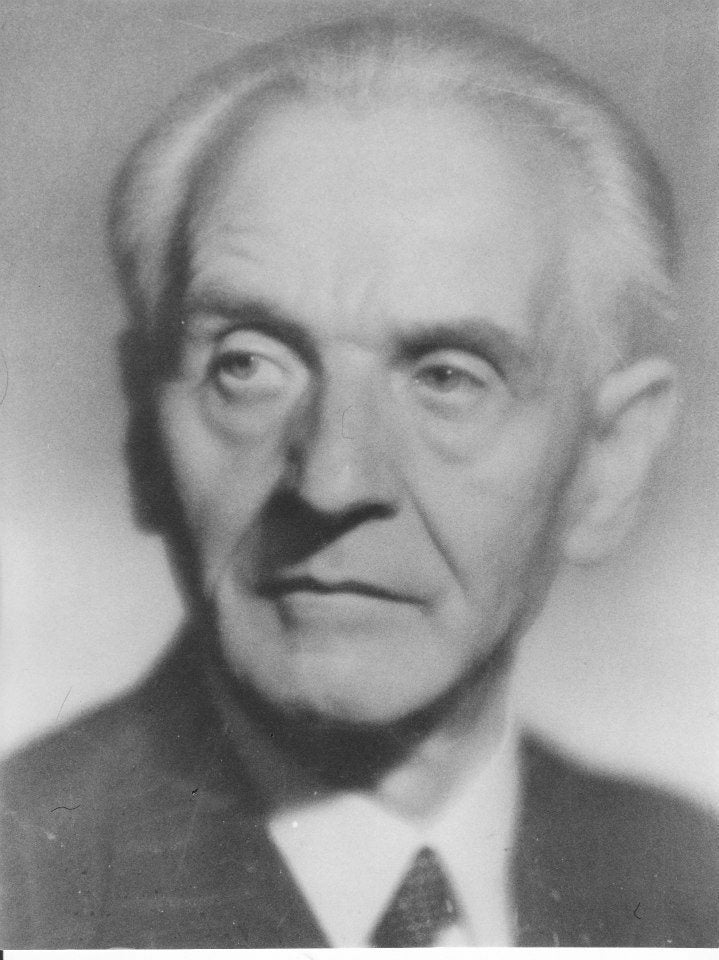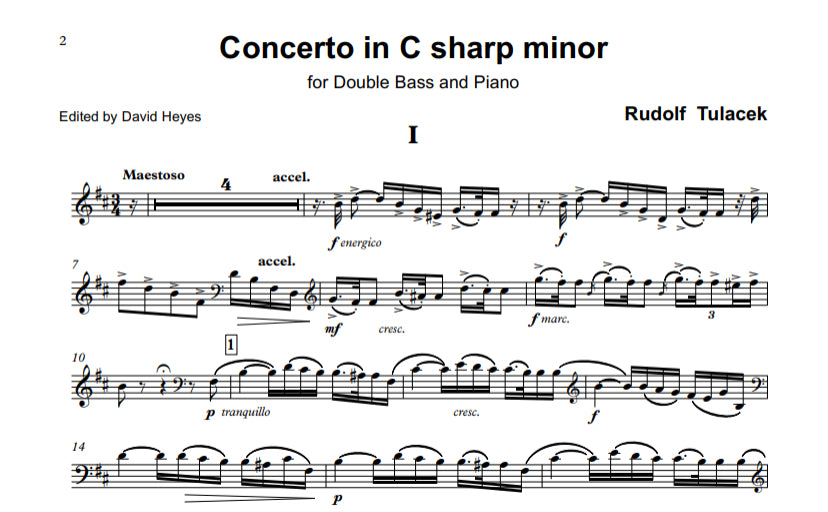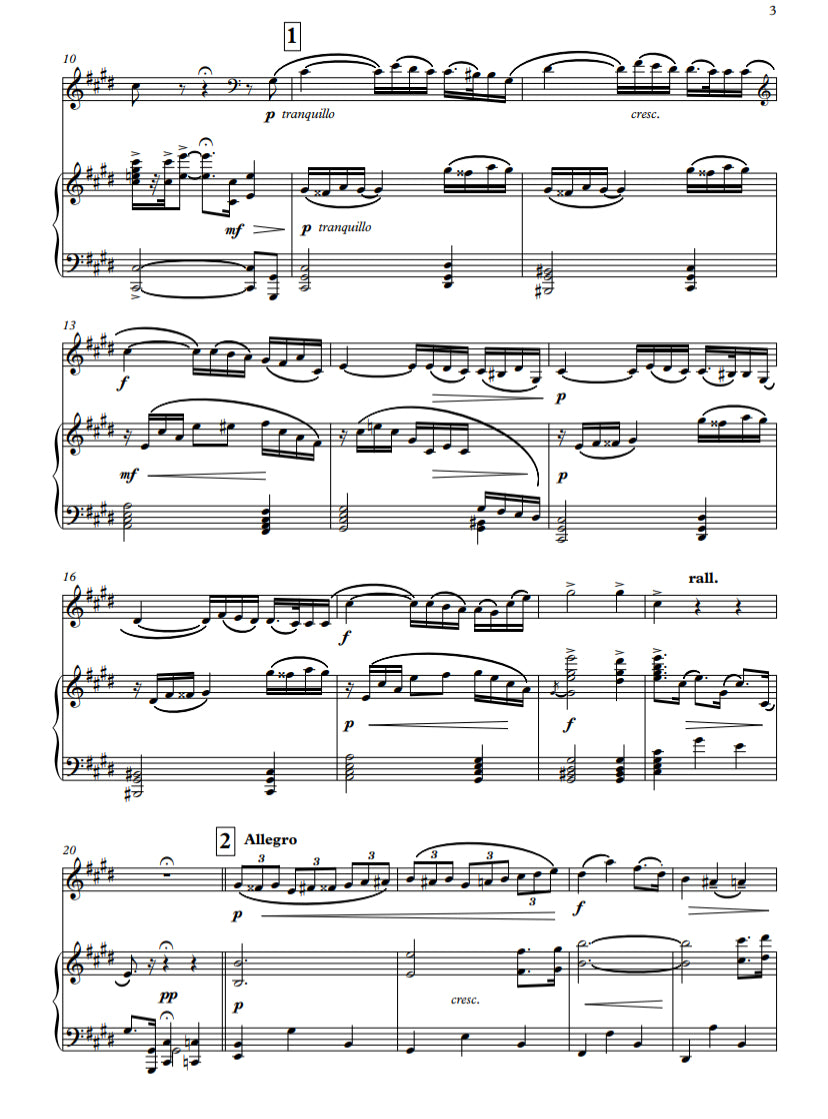David Heyes
Rudolf Tuláček: Concerto in C sharp minor for double bass & piano (solo tuning)
Rudolf Tuláček: Concerto in C sharp minor for double bass & piano (solo tuning)
Couldn't load pickup availability
About the Concerto
Composed in 1942 and orchestrated two years later, Rudolf Tuláček's Concerto in C# minor was in manuscript until Recital Music’s first published edition in 2015 and is aimed at the advanced bassist. Written in the grand romantic style, this is a magnificent bravura concerto full of technical and musical challenges.
Inhabiting a similar sound world to the concertos by Serge Koussevitsky (1874-1951) and Frantisek Černý (1861-1940), the three contrasting movements explore a wide range of romantic passions and emotions with the soloist being tested and challenged across the entire solo register of the double bass.
The first movement is dramatic and virtuosic leading into a beautifully lyrical slow movement that emphasizes the sonorous and cantabile qualities of the solo double bass. The third movement is fast and furious bringing this almost completely unknown concerto to a confident, powerful and successful conclusion. Only available for Solo Tuning.
About Tuláček's double bass compositions
Rudolf Tuláček composed a number of works for double bass between 1903 and 1953, most written during the 1940s in Brno. All demonstrate a lyrical and cantabile approach, typical of the salon and characteristic music of the early years of the 20th-century. Still, his Scherzo and Concerto in C# minor also display a technical bravura and flair, requiring an advanced technical command of the entire instrument. His music was described by Professor Krtička on the first anniversary of his death:
Tuláček’s double bass compositions are unique in their professional quality, and they show a lyrical warmth in their rendition. The noble profile of an artistically uncompromising artist who lives at the same time in harmony with his heart and has almost no equal anywhere permeates his compositions; he is kind to anybody who is good and seeks instruction or information, but he is uncompromising wherever purity of rendition was endangered by shortcomings caused by negligence.
About the Composer
Rudolf Tuláček (1885-1954) was one of the leading Czech double bassists of his generation and was a respected and influential teacher at the Janáček Academy of
Music in Brno. He was born in Jičín, Bohemia, and began to study the double bass at the age of eleven, having already studied flute and violin. So rapid was his progress that he soon became a member of the Jičín Municipal Orchestra and in 1901 entered the Prague Academy of Music to study with František Černý, one of the Czech capital's leading bassists and teachers.
Tuláček graduated in 1907 with the highest commendations from his professors, performing the Geissel Concerto at his public graduation concert, and in 1909 was
offered the post of Solo Bassist in the Zagreb Opera Orchestra. From 1920 he was also a Professor at the Zagreb State Academy of Music, and subsequently became Concert-Master of the Zagreb Philharmonic. His many recitals attest to his perfect technique, supreme musicality, and complete command of the instrument, and concerts included music by Černý, Dvořák, Geissel, Kukla, Láska, Mišek, Simandl, Stein and Tenaglia, alongside his own compositions.
In 1937 Tuláček became Professor of Double Bass at the Brno Academy of Music and in 1948 became the first Double Bass Professor at the newly founded Janáček Academy of Music in that city, where he taught until his death on 17 September 1954. After Tuláček's death, the former Principal of the Brno Academy wrote: "I liked him very much because he was not only an excellent and exemplary professor - very meticulous and conscientious but also an immensely good person, mild and quiet,
who never harmed anybody and was loved by all who met him."
Rudolf Tuláček studied composition at the Prague Academy of Music and later with Antonín Dvořák, and his music displays the lyricism and melodic qualities typical of the salon music of the day, alongside compositions of great virtuosity and energy.
